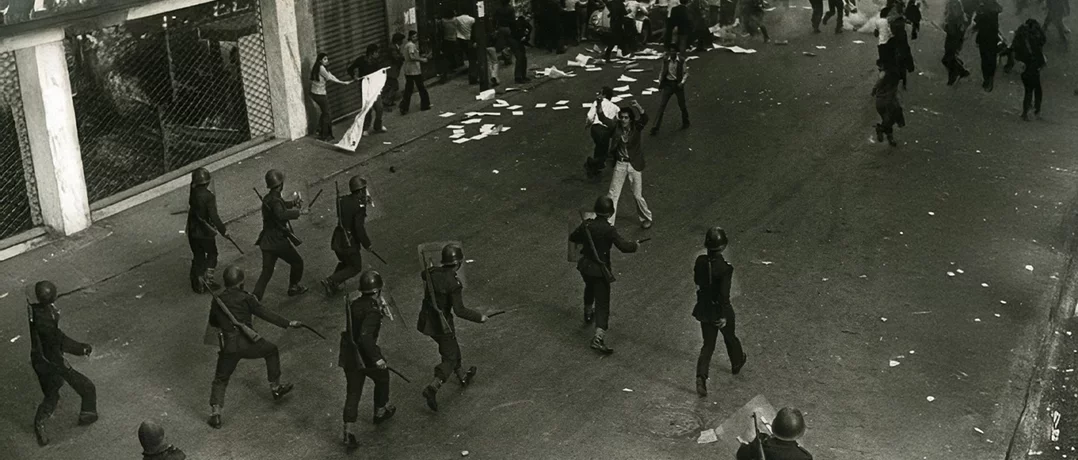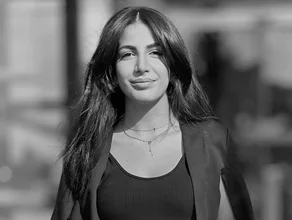Lebanese students are reviving political life through campus activism and elections, defying crisis and disillusionment to reshape the nation's democratic future.
Lebanon’s campuses, the new battleground for change
Lebanon’s campuses, the new battleground for change


Lebanon’s youth have watched their country fray, from the roar of the 2019 revolution to the eerie silence of lockdowns, from a collapsing economy to wars that tested the nation’s very soul. Yet, they have not turned away. In a country where many abandoned politics, students are choosing to believe, actively, defiantly.
Across campuses, students are reclaiming their voice in a system that long ignored them. Their votes are more than contests; they are acts of resistance, bold statements that change begins here, and that hope, battered though it may be, is far from lost.
Lebanon’s universities, a political mirror
Student politics in Lebanon continue to reflect the country’s broader political landscape. Christian student movements are evolving, with traditional parties adjusting to changing dynamics and new student leaders emerging. The Lebanese Forces (LF), Free Patriotic Movement (FPM), and Kataeb Party have historically played major roles in campus elections, though their influence is gradually shifting.
Among Shiite students, Hezbollah and the Amal Movement remain predominant. Sunni representation, once largely centered around the Future Movement, has weakened in recent years, with independent and secular groups gaining visibility in student elections.
The Progressive Socialist Party’s presence in Parliament reflects ongoing political engagement among Druze youth as well.
Campus developments mirror national politics. In the 2022 parliamentary elections, the LF won 19 seats, while the FPM secured 18, along with five allied MPs, totaling 23. The Kataeb Party has maintained a steady influence despite the rise of independent and reformist movements.
Independent and secular student groups, many of which emerged after the October 2019 uprising, have expanded their presence across universities. Prioritizing transparency, equality, and campus-specific issues, they represent a shift in student engagement that continues to shape Lebanon’s evolving political landscape.
A political reawakening: 2025 elections
After most universities postponed elections in 2024 due to Lebanon’s ongoing crises, student contests returned in 2025, marking a revival of political engagement on campuses. These elections carry added weight ahead of the next parliamentary vote, offering young people an early opportunity to participate in democratic life.
Abdo Imad, Student Division Head at the Lebanese Forces (LF), emphasized the consistency of his party’s approach. “Our candidates have always led elections under the LF banner, and their platform aligns fully with that of our MPs, ministers, and LF President Samir Geagea."
A university candidate, at any campus or for any seat, carries the same message and tone as a parliamentary candidate.
For Alaa Qanso, Secretary-General of the USJ office in the Progressive Youth Organization (PYO), student councils are an essential training ground for future leaders. He told The Beiruter, “Elections reflect student diversity, and holding student positions provides opportunities for the future because of the experiences and skills a student acquires through their work on the student council.”
Students often leave school thinking politics is taboo and stay far removed from it. Engaging in politics within universities allows them to form their own opinions and understand local affairs.
In the same context, Rami Sadaka, Youth Department Coordinator at the Free Patriotic Movement (FPM), highlighted the broader role of student elections in shaping civic awareness. “They engage youth in ideas as freedom, sovereignty, independence, combating corruption, and help build an educated, conscious society.”
Sadaka noted that the voting process varies across universities. “Some universities implement unified standards and transparent monitoring, while others rely on electronic voting. Elections are a tool to reach youth and inspire students with principles of freedom, sovereignty, independence, partnership, anti-terrorism, and anti-corruption."
Our aim is to cultivate a conscious, educated generation of young citizens, engaged and free from hatred or division.
At the Lebanese American University (LAU) in Beirut, Hsein Haidar, a candidate in the Arts and Sciences program, secured his seat in the October 10 elections. Reflecting the practical focus of many campaigns, he said his team prioritized real solutions over slogans.
"Honesty and realism guided our campaign. We engaged directly with students, listened to their concerns, and focused on practical solutions, which built trust."
Haidar views the results as a reflection of shifting student priorities. "Results show both a desire for change and growing independence; students are increasingly concerned with daily challenges rather than traditional political affiliations."
For him, victory marks a beginning rather than an end.
"Our first steps include forming a follow-up committee, improving campus services, advocating for fair fees, and creating more opportunities for training and employment. Transparency and ongoing dialogue will guide our work."
Lebanon’s legacy of student activism
Lebanon’s campuses have long been incubators of political activism, where students challenge authority, champion social causes, and shape national discourse. The story stretches for nearly a century, with each generation responding to the crises and opportunities of its time.
The seeds of activism were planted in the 1920s, when Lebanese students protested British Foreign Minister Arthur Balfour’s visit to Jerusalem in 1925. Demonstrations spread across Beirut and Damascus, reflecting regional opposition to colonial interference. In 1948, students rallied in support of the Palestinian cause, opposing the creation of Israel and advocating Arab unity. These early protests fostered a politically conscious youth prepared to engage with national and regional issues.
By 1958, Lebanon faced a new political crisis. Sectarian tensions threatened civil war, and students became active participants. Universities, including the American University of Beirut (AUB), became hotbeds of protest against President Camille Chamoun’s alignment with Western powers. Demonstrations often involved strikes, sit-ins, and occupation of university halls, highlighting how academic spaces became central to political action.
The Lebanese Civil War (1975–1990) further transformed student activism. Initially united in anti-war campaigns, student movements fragmented along sectarian lines. Some students joined militias, while others advocated for peace and reconciliation. Despite divisions, universities remained vital spaces for organizing, debating, and envisioning Lebanon’s future.
The 1982 Israeli invasion reinvigorated student mobilization. Universities hosted strikes, sit-ins, and demonstrations against occupation, showing campuses’ influence over public opinion and political outcomes.
A defining chapter came in 2005, following the assassination of former Prime Minister Rafik Hariri. Students led mass demonstrations during the Cedar Revolution, demanding Syrian troop withdrawal and Lebanon’s restored sovereignty. Their activism was pivotal in ending Syria’s long-standing military presence.
AUB, in particular, has a long and rich history of student engagement. In the early 1970s, for instance, students protested tuition increases through sit-ins and prolonged strikes, while political divisions on campus mirrored national conflicts, including tensions over Palestinian issues and regional alliances. More recently, from 2011 onward, AUB students mobilized during the Arab uprisings, participating in nationwide demonstrations, advocating for social justice, and forming independent student groups that challenged traditional political party dominance. In 2024–2025, AUB students organized protests in solidarity with Palestinians in Gaza, including boycotts of companies supporting Israel and campaigns to raise funds for humanitarian aid.
Imad underscores the continuity of this legacy in contemporary student elections:
"Before 2005, Syrian-controlled security forces pressured universities not to hold elections to limit the representation of sovereigntists. Yet students demanded freedom, sovereignty, and independence. We must not forget their demonstrations in front of Saint Joseph University, NDU, and LAU, demanding LF leader Samir Geagea’s release. Even students from the FPM demanded General Aoun’s return and the Syrians’ exit."
Qanso noted that it is the responsibility of students to take initiative and participate actively in elections, citing examples abroad: “We have seen in Nepal an entire system fall due to youth involvement.” Reflecting on local experiences, Qanso added, “Our youth take pride in participating in major changes, from pre-war demonstrations to 2005, and even just days before the October 17 revolution, protesting Lebanon’s dire conditions."
Each generation of students learns that their voice can influence history.
From anti-colonial protests to revolutionary mobilizations and solidarity movements, Lebanese students have consistently shown that universities are more than academic institutions, they are crucibles of leadership, civic responsibility, and national identity. Across Lebanon, students are proving that democracy is not dead; it’s being reborn on campus. In classrooms and courtyards, they are debating, organizing, and voting, breathing life into a political system their elders long abandoned. The change Lebanon needs will not come from its parliament; it will start in its classrooms, in its hallways, and in the courage of students who refuse to give up on democracy.


